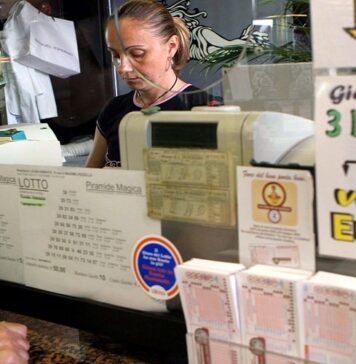
(Jamma) – What a cancellation, what a frustration, for the manager to go and open the comma 6, purchased and installed to replace the notorious Black Slots and inexplicably not recovering, inside, even the money to pay the PREU, above all considering that the machines had played and perhaps looked suspiciously at the operator, even though he had no keys, but after all he was the only one in control of the machine.
After all, not even Mandrake could empty a safe like that with his thoughts. And instead, here is the trick, discovered as a result of stakeouts by a Roman operator, "smarter than the smart", who finally "caught" skilled patrons capable of emptying the hoppers with simple and trivial ignitions or strange sequences of keys. But what a surprise, incredible!
So these comma 6 weren't the top of the security?
And so the Court of Rome with a very recent and sensational sentence, accepting the requests of the plaintiff (the manager) represented by the lawyers Gaetano Lepore, Marco Ripamonti and Carlo Lepore, sentenced the Customs and Monopolies Agency to pay compensation substantial damages (emergent damage and loss of profit) caused to a company, third-party manager in charge of collecting bets, deriving from the anticipated decommissioning of devices, paragraph 6 and paragraph 6 letter a (art.110 of the TULPS), irregular results following preventive technical assessment always promoted before the Court of Rome, prior to the initiation of the legal action.
The Administration defended itself in court, deeming the responsibility of the responsible bodies (approvers) pursuant to Article 38 of Law 388/2000, through agreements, for the technical verification of conformity of the appliance model.
The Administration's defense was entirely rejected by the Court which highlighted how the first condition for gaming devices to be marketed and installed is the acquisition, by manufacturers or importers, of the certification of conformity relating to the electronic device which contains the game and its operating methods, also stating that the certification of conformity is the final act of a procedure which consists of a necessary technical verification delegated in principle to the Administration itself. The Judge also ruled that it is the faculty of the Administration to enter into agreements limited to technical verification only. On this point, the Court noted "It is therefore a priori excluded that subjects other than the Administration in question can issue the certifications that make the gaming devices marketable (...). It must therefore be excluded that the agreements in question are valid for transferring the liability , towards administered third parties, with regard to defects in the certification documents (…) to subjects unrelated to the Administration (…). The plaintiff is (...) a person who has placed his trust in the marketability of the gaming devices purchased, as apparently ensured by the formal acquisition of certification of their compliance with current regulations".
The technical investigation conducted on the game cards, i.e. on the basis of the device available to the plaintiff and the prototype model delivered by the manufacturer to the Monopolies Administration, confirmed the surprising existence of anomalies, synthetically attributable to an easy alteration of the game mechanism, through appropriate and sometimes even trivial stratagems, such as the voluntary interruption of the power supply and subsequent restarting of the device, producing the effect of facilitating the theft of money from the hoppers by malicious third parties.
In this regard, the defense deduction of the Administration relating to the non-attributability to itself of the consequences of the unlawful conduct of game users, the Court of Rome points out, "is clearly groundless when compared with the prescribed content of the technical verification prodromal to certification, being this the latter aimed precisely at excluding or signaling any possibility for the player to affect the functioning of the game in any way (…)”.
The Tribunal of Rome, also considering the procedural evidence of the criminal proceeding (before the Tribunal of Venice) and recalling the "tormented" cross-examination conducted in that proceeding by the lawyer Marco Ripamonti on the witness Dr. Barbarito, manager at the time of office 12, concludes by considering the "(...) extent, seriousness and systematic nature of the violation, by AAMS, of the criteria of good administration".
The sentence in question, which follows on the heels of two recent precedents of the same Court of Rome in the matter of acknowledgment of compensation for the damage suffered by the managers in relation to the "Black Slot cards" affair, again sponsored by the same defenders, with compensation in the millions , confirms the full responsibility of the Monopolies Administration, as the body responsible for the final control of the conformity of the devices which in the present case were found to be clearly irregular despite the issue of the relative certification of conformity.
According to the Court, the former operators, now third-party collectors, trusted in the regularity of the certified machines and therefore invested large sums to renew the fleet of machines (following the "Black Slot" affair) through the purchase of new machines which proved to be times irregular due to the fact and fault of AAMS which violated the criteria of good administration, as moreover effectively supported by the defenders.
The Court thus remedied the umpteenth case involving the former managers – third-party collectors who were the injured party with a decision that the lawyer Marco Ripamonti, satisfied with the outcome, defines as fair, punctual and perfectly in line with the regulatory principles in matter of compensation for damages.
The Judgment is already arousing great interest from all those operators who at the time, but still in good time to sue AAMS, decided to abandon various models of paragraph 6 and paragraph 6a precisely because of the various anomalies found in the judgment on the subject, about the aforementioned tricks likely to allow the fraudulent emptying of the hoppers.
On the horizon, therefore, it is foreseeable that a considerable amount of civil litigation against AAMS will develop in a short time.










